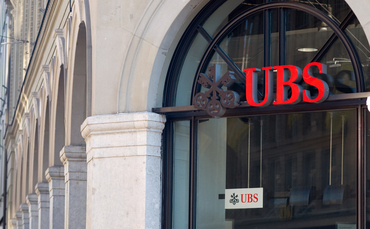On Wednesday (8 November), the Swiss bank started selling its first AT1 bonds since taking over Credit Suisse in March, when $17bn worth of the instruments were wiped out as part of the rescue deal, a move that sparked controversy across European debt markets.
The instruments were sold in two tranches that could be redeemed in either five or ten years, with an initial price talk marketed at 10% for a five-year call and 10.125% for a 10-year call.
UBS offers first AT1 bonds since Credit Suisse takeover
According to Lichwa, the initial pricing implied about 550bps pick-up in spread over treasuries for the five-year and 560bps for the 10-year tranche. The bonds also received ratings of Baa3/BB/BBB- from Moody's, S&P and Fitch, respectively.
By early afternoon on Tuesday, initial price talk had already been revised down to 9.625% for the five-year and 9.75% for the 10-year tranche. At that point, the books stood at $26bn, but continued to swell to over $36bn at the close, he noted.
Final pricing was cut further, landing at 9.25% for both deals, which amounted to $3.5bn of new issuance, Lichwa said, noting that the final pricing still implies a "healthy margin" of about 470bps over five- and 10-year treasuries for what is an investment grade rated bond.
"The importance of this deal for the AT1 market, and how well the execution has gone, cannot be overstated in our view, while the Swiss authorities must also be breathing a sigh of relief given the cloud hanging over its regulatory regime," he said.
What are AT1 bonds and why is Credit Suisse's $17bn wipe-out controversial?
The wipeout of Credit Suisse's AT1 bonds in March came as a surprise, given unsecured bondholders traditionally rank above equity holders in the capital structure, and forced the Bank of England and EU regulators to step in with veiled disagreements to the Swiss regulator's move.
"Firstly, the book size of $36bn is unheard of, not only in the AT1 space, but more broadly in general credit markets, and we struggled to think of a more successful deal," said Lichwa.
"To put the order book size into some context, the amount represents around 17% of the value of the Coco bond index, or about a third of all $ AT1 bonds."
The portfolio manager also noted that the performance of both tranches yesterday (9 November) was "nothing short of phenomenal". According to Lichwa, this highlighted the quality of the book and the strength of demand that supported the transaction.
The keen anticipation of the UBS transaction was mixed, he said, with uncertainty around the adequate pricing levels, investor interest, and the attitude towards an issuer out of the Swiss jurisdiction.
Government-supported buyout wipes out $17bn in Credit Suisse bonds
According to Lichwa, UBS's balance sheet implies "significant presence" in the AT1 market and will represent a benchmark for pricing the rest of the space.
"In any event, we believe that the execution of this transaction has addressed a lot of these uncertainties and, in a way, represents a cathartic event for AT1s," he said.
"Coupled with the strong performance of treasuries in the past few weeks, as well as evolving rhetoric from central banks around peak rates, we see the sector very well set up for the reminder of the year and next."


